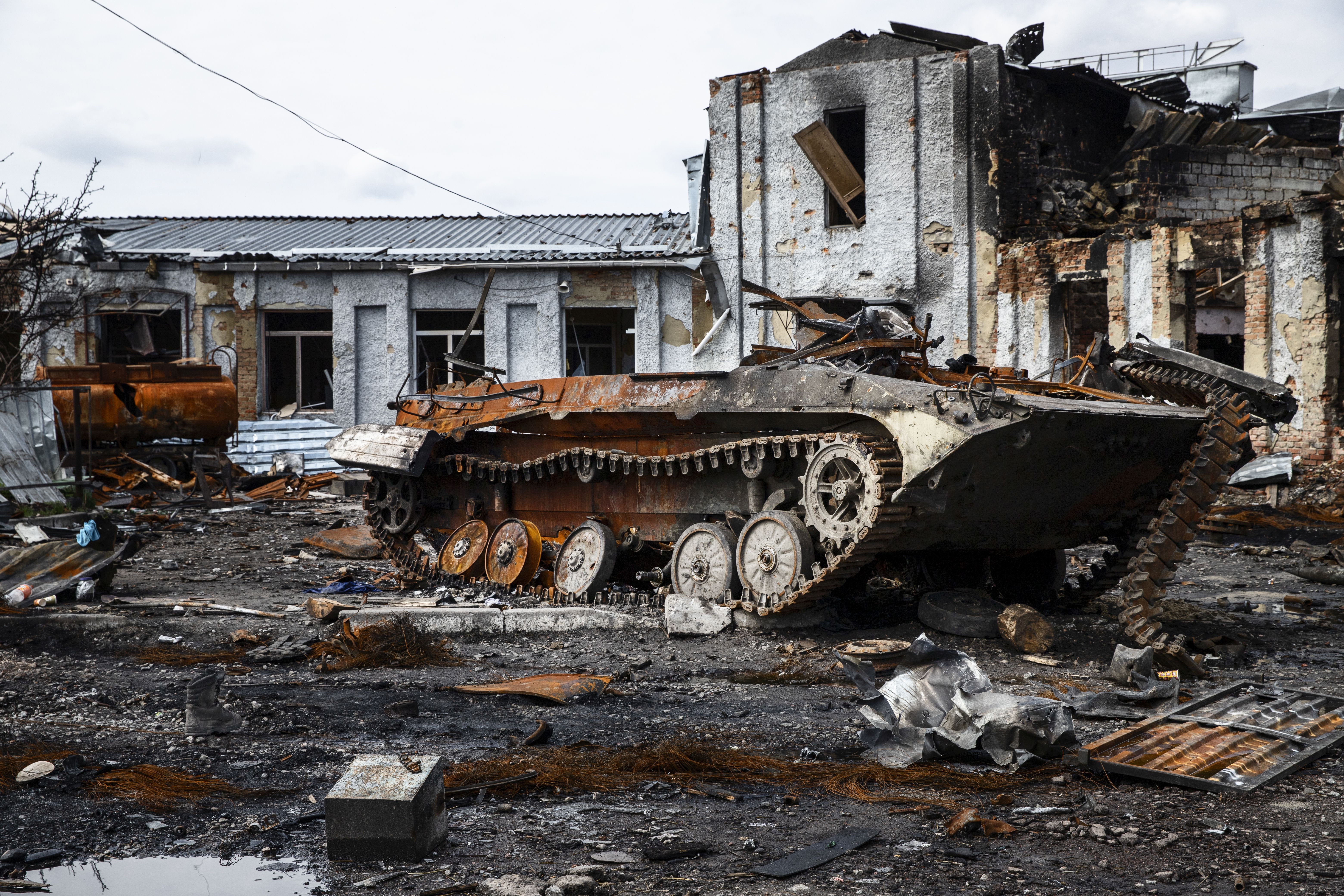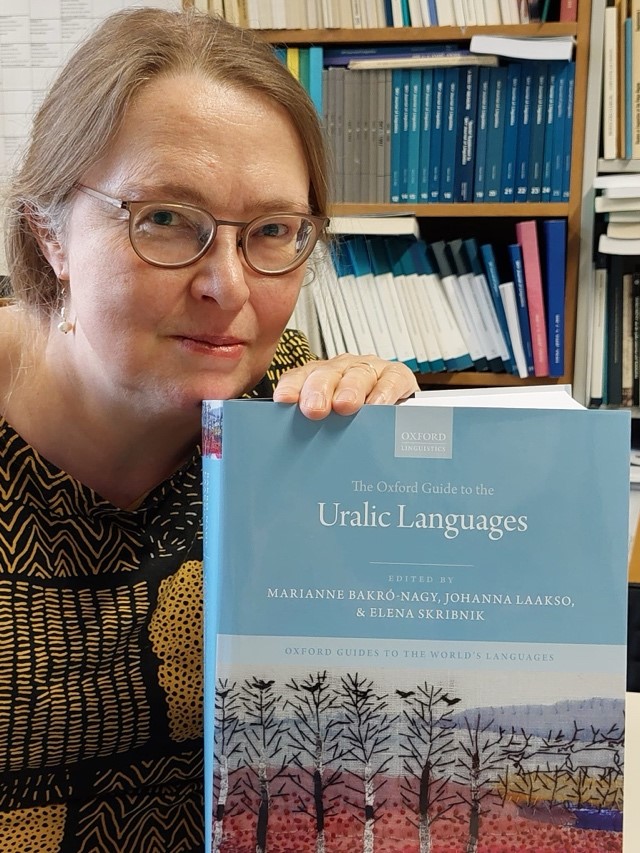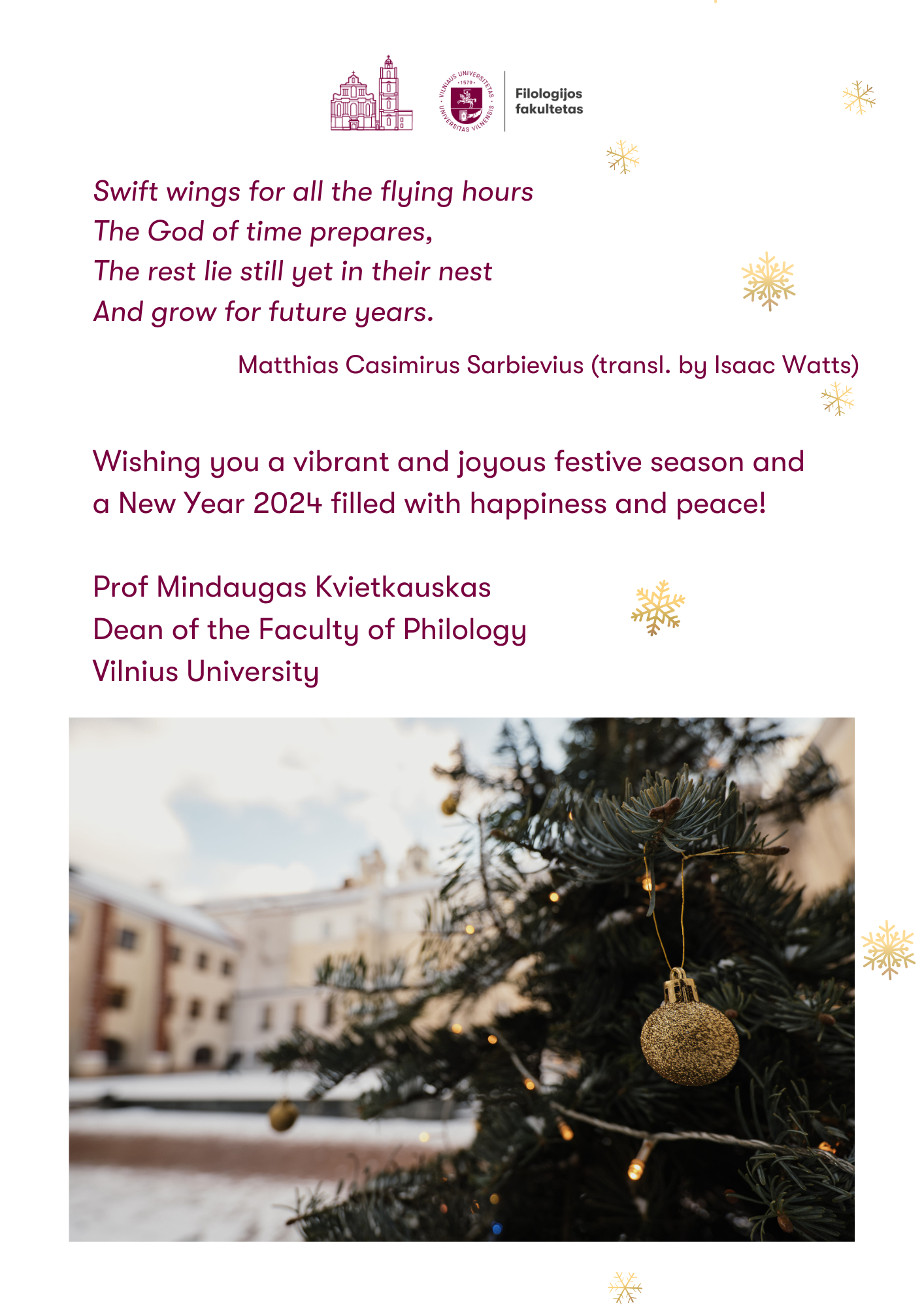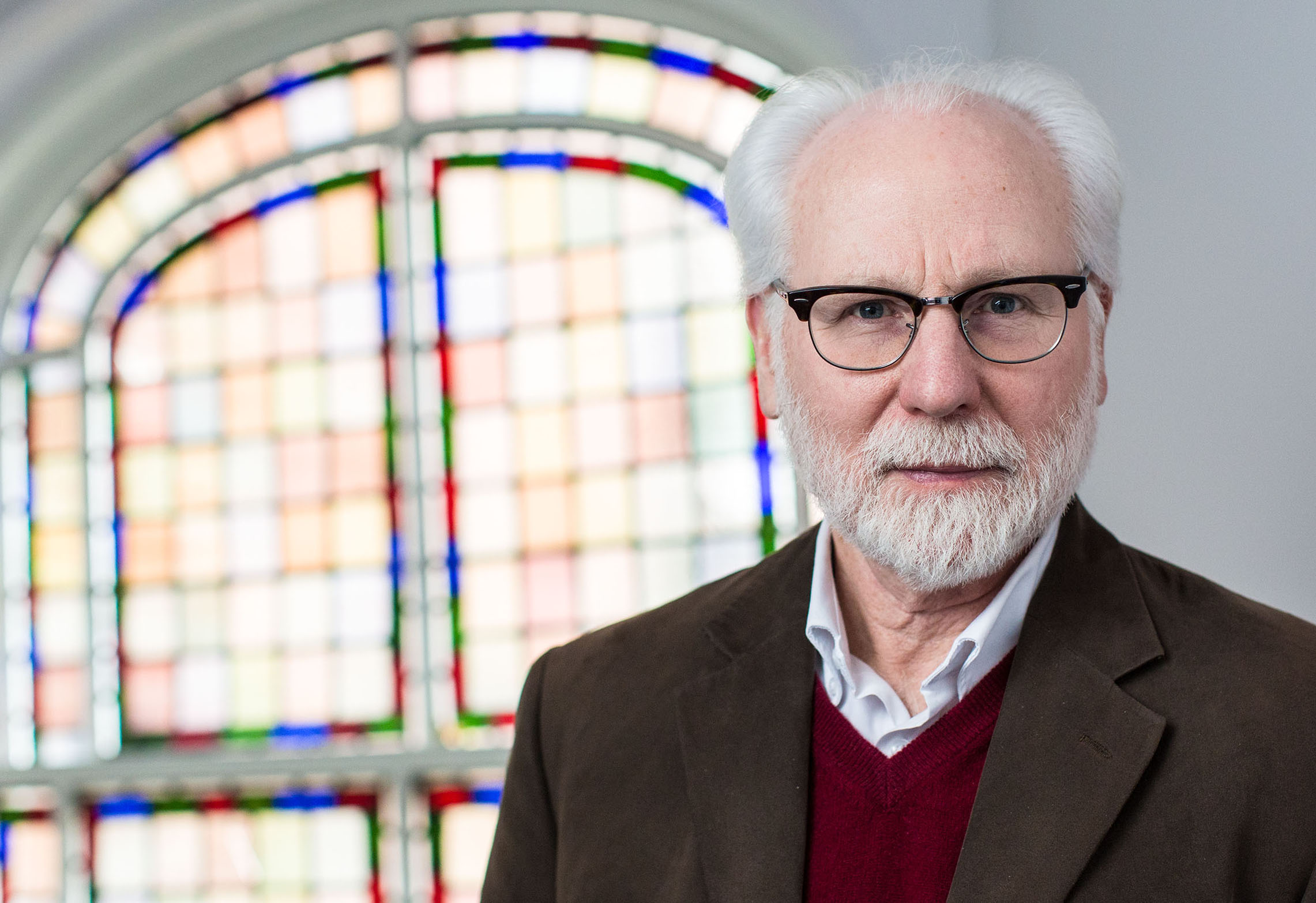
On 10 January, Ukrainian President Volodymyr Zelensky paid a visit to Vilnius. One of the key issues discussed at the Presidential Palace was keeping the world’s focus on Ukraine so that the West does not stand back or waver over continued support to Ukraine until its ultimate victory.
In the latest episode of the Vilnius University (VU) podcast “Mokslas be pamokslų” (“Science without Sermons”), Assoc. Prof. Dr Liudmila Arcimavičienė, researcher at the Faculty of Philology and the Institute of International Relations and Political Science, talks about how the choice of words in war news and related quotes in the public media can shape the way we think and, perhaps, even behave, as well as how and why the topic of war is becoming something of a routine.
Wars leave no room for neutrality
Indeed, war fatigue is definitely settling across the general public, emerging as a natural response to overexposure to endless discussions and news on the war. There is a certain general feeling of rejection. Therefore, VU linguists have recently attempted to figure out how the presentation of war news can affect our attitudes or even behaviour. Their hypothesis is that the repeating negativity may routinise linguistic constructs related to the violence narrative, thus reducing the sense of aggression and giving legitimacy to such negative contexts.
‘We assume that the way this war is described in the media does trigger some very pessimistic feelings. This is not because journalists might do it deliberately but because the war narrative itself inherently contains certain adverse elements (e.g. ideological opposition) that lead to the routinisation of highly negative emotions,’ says the researcher.
Since the beginning of the large-scale war in Ukraine, it has become obvious that people and countries inevitably have to choose sides. According to the researcher, people are divided into two very clearly defined camps: us and them. ‘We are the ones who are defending ourselves in this war, and they are the ones attacking us. Many researchers have observed that this ideological opposition can become quite damaging over time in terms of human emotions and everyday life. In fact, we do realise that every conflict situation is always very complex, and sometimes it is even impossible to make a clear-cut choice. However, the war narrative forces us to take sides, leaving no room for neutrality,’ explains the linguist.
According to her, staying neutral, in a sense, means giving up universal and fundamental human values, such as freedom and independence. This, in turn, can be very painful to endure.
What are the mechanics of war reporting?
Having studied statements on the war in the Lithuanian media, the researcher notes that they are harshly criticised in the news because the war has to be legitimised, i.e. the side we support has to be clearly presented. This is evident, first of all, from media quotes. ‘Across all war news, the majority of provided quotations are statements by Ukrainian representatives (12 per cent), followed by American representatives, while those of Russians (0.19 per cent) are cited the least. Russian representatives are not quoted in full, providing only some excerpts from their original quotes.’
When describing the war in the media, their side is Russia, the Kremlin, and Putin, and there is no specific reference other than “people”. At the same time, when it comes to Ukraine, it is always the Ukrainian nation and the President of the country who are mentioned and always personalised. Even the name of the Russian state has been put in lowercase letters.
The researcher notes that this can lead to hostility towards other members of our society because there are people living in Lithuania who are of Russian origin or who have come from this country. This leads to anti-Russian sentiment and unconscious unfriendliness towards this nation and its language. Such tendencies started emerging shortly after the outbreak of the war. ‘I personally remember that when the war started, there was a lot of talk that taxi drivers are fighting through the means of Russian music, language, or radio broadcasts – and why is that? After all, this is our enemy. In this way, the discourse of war can actually influence our everyday lives, tolerance of other people or phenomena, our perception of aggressiveness, and aggression itself.’
Decoding war news coverage
Assoc. Prof. Dr Arcimavičienė and her team have identified the most discussed topics in the reporting of the war. The first thing to mention is descriptions of military equipment, which are very diverse and detailed, including lots of numbers and names. Another common feature of war news coverage is numbers in general (e. g. casualty figures).

Assoc. Prof. Dr Arcimavičienė. Photo credit: VU
‘Such descriptions contribute to explaining or creating cognitive dissonance in an individual’s life, where aggressiveness may not be justified but is at least rationalised, making it something that can be calculated, predicted, and planned. On the one hand, this rationalisation of aggressive behaviour creates a certain sense of security, making us believe that the war is under control, the necessary actions are underway, and that we are heading towards victory. And then we expect a certain result. But, on the other hand, then we see the casualty figures. People, similarly to military equipment, become statistical units.’ In this case, it is assumed that the value of human life is diminishing, empathy starts fading, and people are becoming more tolerant of death.
According to the researcher, at the onset of the war, the dominant emotions raised by the news were fear and horror. How could it happen at all? A war has broken out in the 21st century; how is this even possible? Basically, every single report on casualties horrified us. Now, it seems that we can read about such atrocities more calmly over a cup of coffee. Human life has turned into a statistical unit, and all this has become routine.
‘This is the effect of language – when people keep reading certain messages for a long period of time, they tend to make some associations and start unconsciously perceiving the situation in that specific way, no longer having any control over their own judgment. The war narrative always has its consequences. That is what we seek to investigate – how do people in Lithuania actually feel?’
The linguist points out that the news coverage also contains a lot of disputes over relations between the parties. More specifically speaking, the narrative of mutual relations concerns the involved countries. It is used in the context of the war and political relations – who is really supporting Ukraine, and who is betraying it for money or other economic gain?
People need drama
We are used to dramatic content in our daily lives (watching certain movies, reading books, etc.), so the fight against evil is also expected to be dramatic and lead to victory. People react unconsciously, expect only the desired outcome, and cannot accept any other options. However, the war has been dragging on for almost three years now, and the anticipated victory has not materialised; thus, it can cause the routinisation and rejection of such news.
Public quotations on the war are also drawing a certain dramatic line. Volodymyr Zelensky has chosen a very clear communication strategy – to consistently report on casualties and use this as a means to keep the global focus on the war in Ukraine.
According to Assoc. Prof. Dr Arcimavičienė, in times of war, political leaders, as well as their speeches and public appearances, are of paramount importance. They use their statements to unite the nation, mobilise it, and make it hungry for victory. ‘Volodymyr Zelensky always talks about the “peace formula”, suggesting that we have a specific formula that could be applied to ensure peace, but it does not work that way. Moreover, he always mentions the Ukrainian nation in his speeches, using the pronoun we – we are working, we are strong – to mobilise and reassure Ukrainians. The key thematic concepts used by Zelensky are freedom, strength, and victory over evil,’ says the linguist.
How to maintain focus and empathy?
When asked how to keep people focused on the war coverage but at the same time not in a state of constant anxiety, Assoc. Prof. Dr Arcimavičienė says that the best way is to talk and write about real people, tell their true personal stories, show how they live, how they feel, and why victory is important to them personally. ‘Reading such texts makes us more empathetic to other people and lost lives because the narrative of war and statistics used in the news only serve to reduce the sense of empathy and to justify or even reinforce aggression.’
The researcher suggests paying attention to the simple things in our daily lives – how we use words and how we speak. ‘Every word is extremely important (as it also affects our behaviour), especially in the challenging times of war. Journalists have a great responsibility here because they must both present the facts as they are and also wrap them in such words that would not fuel aggressive attitudes and actions.’



 The organisers invite you to participate in the final conference of the MotherNet "Thinking Through Motherhood: Images, Experiences and Narratives Across Time”. The project is interdisciplinary, implemented in collaboration with the University of Maynooth in Ireland and Uppsala University in Sweden, and is carried out by the Vilnius University Faculties of Philology, Philosophy and Medicine. The international, interdisciplinary conference will bring together more than a hundred participants from 20 countries, including scholars from European countries, the USA, Canada and India. The main objective of the project is to develop maternity studies by bringing together researchers from different fields.
The organisers invite you to participate in the final conference of the MotherNet "Thinking Through Motherhood: Images, Experiences and Narratives Across Time”. The project is interdisciplinary, implemented in collaboration with the University of Maynooth in Ireland and Uppsala University in Sweden, and is carried out by the Vilnius University Faculties of Philology, Philosophy and Medicine. The international, interdisciplinary conference will bring together more than a hundred participants from 20 countries, including scholars from European countries, the USA, Canada and India. The main objective of the project is to develop maternity studies by bringing together researchers from different fields.



